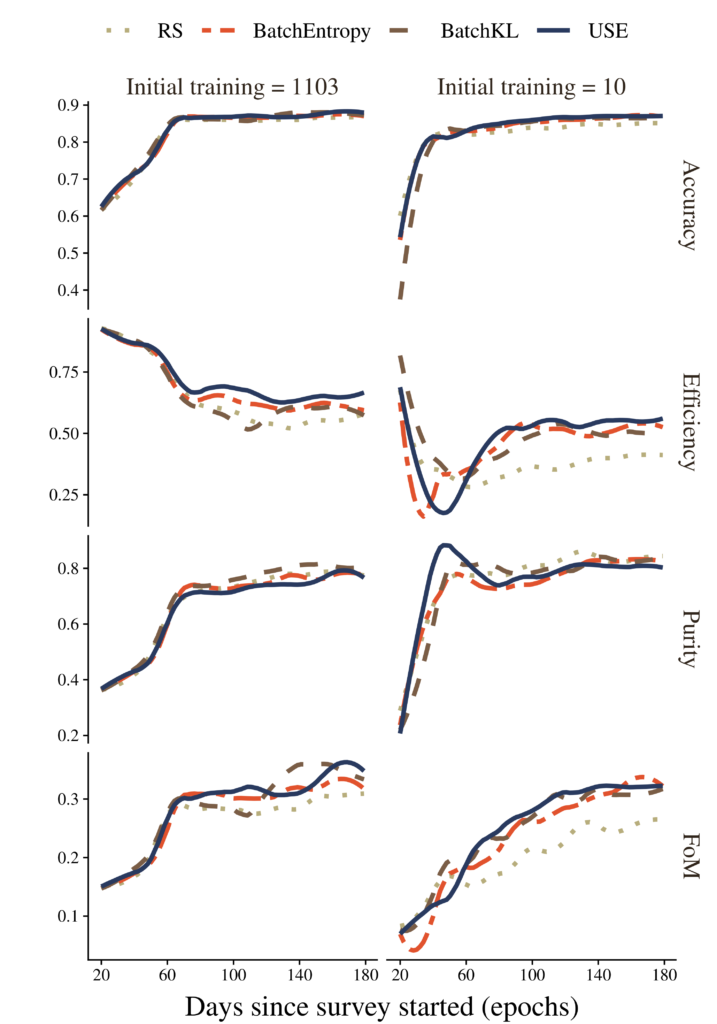Active Learning with RESSPECT: Resource allocation for extragalactic astronomical transients
The recent increase in volume and complexity of available astronomical data has led to a wide use of supervised machine learning techniques. Active learning strategies have been proposed as an alternative to optimize the distribution of scarce labeling resources. However, due to the specific conditions in which labels can be acquired, fundamental assumptions, such as sample representativeness and labeling cost stability cannot be fulfilled.
The Recommendation System for Spectroscopic follow-up (RESSPECT) project aims to enable the construction of optimized training samples for the Rubin Observatory Legacy Survey of Space and Time (LSST), taking into account a realistic description of the astronomical data environment. In this work, we test the robustness of active learning techniques in a realistic simulated astronomical data scenario.
Our experiment takes into account the evolution of training and pool samples, different costs per object, and two different sources of budget. Results show that traditional active learning strategies significantly outperform random sampling. Nevertheless, more complex batch strategies are not able to significantly overcome simple uncertainty sampling techniques.
Our findings illustrate three important points: 1) active learning strategies are a powerful tool to optimize the label-acquisition task in astronomy, 2) for upcoming large surveys like LSST, such techniques allow us to tailor the construction of the training sample for the first day of the survey, and 3) the peculiar data environment related to the detection of astronomical transients is a fertile ground that calls for the development of tailored machine learning algorithms.
Full citation: Kennamer et al., IEEE Symposium on Computational Intelligence for Astroinformatics, 2020, Camberra, Australia
This project is a result from COIN Focus #1 – Clermont Ferrand, France/2019 and COIN Focus #3, remote/2020.
- Noble Kennamer, U. California Irvine (USA)
- Emille E. O. Ishida, CNRS/UCA (France)
- Santiago Gonzalez-Gaitan, CENTRA (Portugal)
- Rafael S. de Souza, Shanghai Astronomical Observatory (China)
- Alexander Ihler, UCI (USA)
- Kara Ponder, U. California Berkeley (USA)
- Ricardo Vilalta, U. Houston (USA)
- Anais Moller, CNRS/UCA (France)
- David O. Jones, UCSC (USA)
- Mi Dai, JHU (USA)
- Alberto Krone-Martins, U. California Irvine (USA)
- Bruno Quint, Gemini Observatory (Chile)
- Sreevarsha Sreejith, BNL (USA)
- Alex I. Malz, German Centre for Cosmological Lensing (Germany)
- Lluis Galbany, Institute of Space Sciences (Spain)






